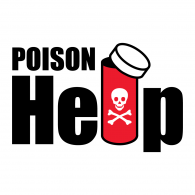| National Poison Prevention Week raises awareness of poison prevention nationwide during the third full week of March every year. The week is an opportunity to highlight the dangers of poisonings for people of all ages. The third full week in March has been designated National Poison Prevention Week, focusing national attention on the dangers of poisonings and how to prevent them. Established by the U.S. Congress in 1961, National Poison Prevention Week is commissioned by the National Poison Prevention Week Council.
Each year, more than 2 million poisonings are reported to the Nation’s poison control centers. According to the American Association of Poison Control Centers, 93 percent of poisonings happen at home, and 45 percent of poisonings involve children under the age of 6. The majority of fatal poisonings occur among adults, especially older adults. In the United States, poison control centers handle 1 call every 13 seconds.
To prevent these poisonings from happening to you or a loved one, parents, teachers, nurses, and everyone in the community should take measures to ensure that unintentional poisonings are being prevented. A few ways to prevent a poisoning from happening include placing household chemicals out of the reach of children, storing items in their original containers to avoid confusion, and reading product labels, including the recommended dosages on all products. Older adults should take special precautions to understand medication safety.
More than 90 percent of the time, poisonings happen in people’s homes. The majority of these poisonings occur in the kitchen, bathroom and bedroom. That is why it is important to follow simple steps to prevent a poisoning from happening at home. Teach your family to never touch or put anything in their mouths unless they know what it is.
Below are additional tips on how to keep poisonous items safe in your home.
Medicines:
• Keep all medicines, and potentially poisonous substances, in locked cabinets or out of the reach of children.
• Keep medicines in their original containers, properly labeled, and store them appropriately.
• Never share prescription medicines. If you are taking more than one drug at a time, check with your health care provider, pharmacist, or call the toll-free Poison Help line (1-800-222-1222), which connects you to your local poison center, to find out more about possible drug interactions.
Carbon monoxide (CO):
Have a working carbon monoxide detector in your home. The best places for a CO detector are near bedrooms and close to furnaces.
Household products:
• Household cleaners and disinfectants can make you sick when not used properly. Always follow the instructions on the product label to ensure safe and effective use.
• Bleach is especially toxic and should not be mixed with anything other than water.
• Keep all household cleaners and potentially poisonous substances in locked cabinets or out of the reach of children.
• Keep products in their original containers.
• Do not use food containers (such as cups or bottles) to store household cleaners and other chemicals or products.
• Keep all laundry products locked up, high, and out of the reach of children.
• Do not use bleach on food products.
• Avoid using household cleaners and disinfectants on hands or skin improperly.
Chemicals
• Keep all chemicals and potentially poisonous substances in locked cabinets or out of the reach of children.
• Keep antifreeze and all chemicals and household products in their original containers.
• Never mix household or chemical products together. Doing so can create a dangerous gas.
Back to school and art supplies
• Some art products are mixtures of chemicals. They can be dangerous if not used correctly. Make sure children use art products safely by reading and following directions.
• Do not eat or drink while using art products.
• Wash skin after contact with art products.
• Clean equipment. Wipe tables, desks, and counters.
• Keep art products in their original containers.
Food
• Wash fruits and vegetables with running water.
• Do not wash meat, poultry or eggs.
• Never use commercial cleaning products on food or food packaging.
• Wash your hands and work surfaces before, during, and after preparing food.
• Wash hands and counters before preparing all food.
• Store food at the proper temperatures. Refrigerated foods should not be left out at temperatures above 40 degrees F (5 degrees C).
• Use clean utensils for cooking and serving.
Animals and insects
• Know what poisonous snakes live in your area and wear proper attire (boots, etc.) when hiking outdoors.
• Check the label on any insect repellent. Be aware that most contain DEET, which can be poisonous in large quantities.
• Plants, mushrooms and berries
• Be sure that everyone in your family can identify poisonous mushrooms and plants.
• Call your local poison center to learn about common poisonous plants in your area.
***Poison Help line, 1-800-222-1222 |
